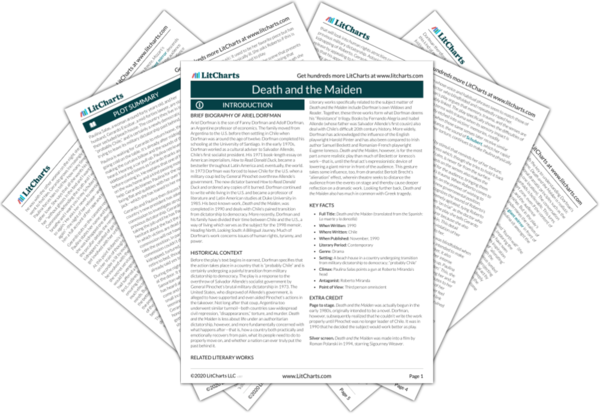The sea is a background presence in Death and the Maiden, overlooked by Paulina and Gerardo’s beach house. It functions in subtle and various ways. First of all, it represents unknowability—and, indeed, big questions hang over the play: will the country be able to move on from the atrocities of the past; will Paulina ever truly recover from her trauma; and, crucially, is Roberto the same man that raped and tortured her? Paulina frequently looks out to sea, especially when she is recounting her past. In this light, then, the sea also represents her memory, both in the way her memories function in the depths of her unconscious and in the ultimate irretrievability of the past. The sea as a constant background also gestures towards greater expanses of time, suggesting that though the country’s wounds—and Paulina’s—may never be healed, they will, over time, come to be forgotten.








